

What can Christianity as a tradition contribute to the struggle to secure the future well-being of the earth community? This collaborative volume, the third in the series on religions of the world and the environment, announces that an ecological reformation, an eco-justice reorientation of Christian theology and ethics, is prominent on the ecumenical agenda.
The authors explore problematic themes that contribute to ecological neglect or abuse and offer constructive insight into and responsive imperatives for ecologically just and socially responsible living.

This book takes a critical look at the notion of well-being by examining what well-being means, or could mean, to people living in a number of different regions including Sudan, Nepal, Papua New Guinea, India, Sierra Leone, and the UK.
The contributors take issue with some of the assumptions behind Western concepts of well-being. They explore what characterizes a "good life" and how this idea has been affected by globalization and neoliberalism.
The book makes a major contribution to social theory by presenting new analytical models that make sense of the changing shapes of people's life and ethical values.
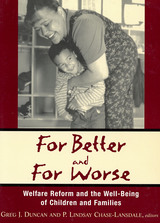
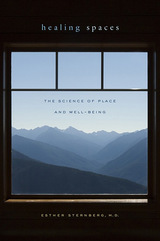
“Esther Sternberg is a rare writer—a physician who healed herself…With her scientific expertise and crystal clear prose, she illuminates how intimately the brain and the immune system talk to each other, and how we can use place and space, sunlight and music, to reboot our brains and move from illness to health.”—Gail Sheehy, author of Passages
Does the world make you sick? If the distractions and distortions around you, the jarring colors and sounds, could shake up the healing chemistry of your mind, might your surroundings also have the power to heal you? This is the question Esther Sternberg explores in Healing Spaces, a look at the marvelously rich nexus of mind and body, perception and place.
Sternberg immerses us in the discoveries that have revealed a complicated working relationship between the senses, the emotions, and the immune system. First among these is the story of the researcher who, in the 1980s, found that hospital patients with a view of nature healed faster than those without. How could a pleasant view speed healing? The author pursues this question through a series of places and situations that explore the neurobiology of the senses. The book shows how a Disney theme park or a Frank Gehry concert hall, a labyrinth or a garden can trigger or reduce stress, induce anxiety or instill peace.
If our senses can lead us to a “place of healing,” it is no surprise that our place in nature is of critical importance in Sternberg’s account. The health of the environment is closely linked to personal health. The discoveries this book describes point to possibilities for designing hospitals, communities, and neighborhoods that promote healing and health for all.

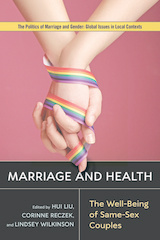

The contributors address conceptual and methodological issues involved in measuring such important health status concepts as: physical, social, and role functioning; psychological distress and well-being; general health perceptions; energy and fatigue; sleep; and pain. The authors present psychometric results and explain how to administer, score, and interpret the measures.
Comprising the work of a number of highly respected scholars in the field of health assessment, Measuring Functioning and Well-Being will be of great interest and value to the growing number of researchers, policymakers, and clinicians concerned with the management and evaluation of health care.
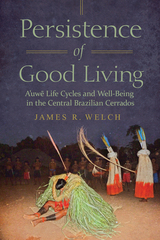
Anthropologist James R. Welch transparently presents ethnographic insights from his long-term fieldwork in two A’uwẽ communities. He addresses how distinctive constructions of age organization contribute to social well-being in an era of major ecological, economic, and sociocultural change. Welch shows how A’uwẽ perspectives on the human life cycle help define ethnic identity, promote cultural resilience, and encourage the betterment of youth. They provide frameworks that people may creatively mobilize to responsibly and respectfully engage with others at different stages of life. They also motivate people to access and manage landscape resources essential to the social construction of good living. Through careful analysis, Welch shows how contemporary traditional peoples can foster enthusiasm for service to family and community amid dominant cultures that prioritize individual well-being.
This book is an essential resource for students and scholars interested in sociocultural anthropology, Indigenous cultures, health and culture, and human ecology.
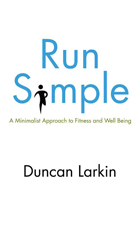
In this age of instant information and new technologies, marathoner and fitness instructor Duncan Larkin recommends that runners get rid of their iPods, pace calculators, and heart monitors while exercising. Rather than helping a runner to improve, the author contends that these devices can be a detriment to both performance and the benefits of a training program. Written in direct, clear language, Run Simple: A Minimalist Approach to Fitness and Well-Being is a practical and inspirational pocket guide for runners of all abilities. The author’s goal is to share with his fellow runners the principles he has discovered that prevent burn out and promote the maximum physical and mental benefits of running. Beginning with a discussion about the role of electronic devices and other equipment that have become commonplace among the millions of persons who run every day, the author explains how to return to a simpler way of exercising and training, including running plans that demonstrate the benefits of watch-free running. He also recommends replacing a gym membership with alternative exercises that can be done at home as well as taking better control of individual nutrition. In addition, the author shows ways to economize expenses associated with running, how to dress properly for different weather conditions, and mental exercises for motivation. By following the author’s advice, runners will improve their running experience and maintain a healthy exercise regimen.
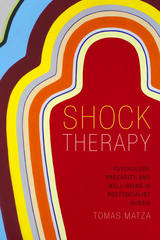
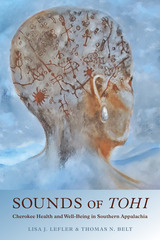
Sounds of Tohi: Cherokee Health and Well-Being in Southern Appalachia is the result of almost two decades of work by medical anthropologist Lisa J. Lefler and Cherokee elder and traditionalist Thomas N. Belt. The narrative consists of a dialogue between them that displays traditional Indigenous knowledge as well as the importance of place for two people from cultures and histories that intersect in the mountains of Southern Appalachia. Together, Lefler and Belt decolonize thinking about health, well-being, and environmental issues through the language and experiences of people whose identity is inextricably linked to the mountains and landscape of western North Carolina.
Lefler and Belt discuss several critical cultural concepts that explain the science of relationships with this world, with the spirit world, and with people. They explore tohi, the Cherokee concept of health, which offers a more pervasive understanding of relationships in life as balanced and moving forward in a good way. They converse about the importance of matrilineality, particularly in light of community healing, the epistemologies of Cherokee cosmography, and decolonizing counseling approaches.
The discussions here offer a different way of approaching the issues that face Americans in this difficult time of division. Lefler and Belt share their urgency to take action against the wholesale exploitation of public lands and the shared environment, to work to perpetuate tribal languages, to preserve the science that can make a difference in how people treat one another, and to create more forums that are inclusive of Native and marginalized voices and that promote respect and appreciation of one another and the protection of sacred places. Throughout, they rely on the preservation of traditional knowledge, or Native science, via Native language to provide insight as to why people should recognize a connection to the land.

A response is needed to the numerous issues spurred by the expansion of the gig economy, where flexible patterns of employment prevail in contrast to permanent jobs. In this context of the exponential growth of the digital economy and underlying business models the largest nationwide study of its kind into the impact of the working conditions in the UK music industry ‘Can Music Make You Sick?’ has been conducted by MusicTank/University of Westminster.
This research suggests the need to consider the future of work not only from an economic or employment law perspective but from a mental health one too. What are the psychological implications of precarious work and how are factors such as financial instability, the feedback economy and personal relationships reflected in mental health outcomes or connected to the business relationships most musicians and other gig economy participants work under?
Authors Sally-Anne Gross, George Musgrave and Laima Janciute consider which policy measures may help or harm gig economy workers including the taxation of self-employed workers, a universal basic income, education around mental health issues and access to mental health support.
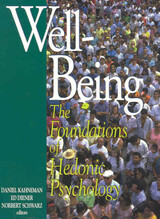
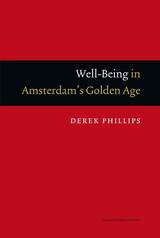
their well-being across the lifespan.

- navigating the pitfalls of vocational awe, which can lead to unrealistic expectations and self-neglect;
- setting and recalibrating healthy boundaries;
- approaching difficult conversations by creating spaces for positive staff communication;
- overcoming limited budgets;
- the proper mindset for encouraging realistic performance expectations among employees;
- using recognition, appreciation, and staff professional development as tools for wellness;
- nurturing social connections and collaboration to combat loneliness;
- effective techniques for addressing sensitive issues such as disabilities, confronting anti-fat bias, and moral injury;
- emotional and invisible labor mitigation; and
- self-care methods for library leaders at risk of burnout.
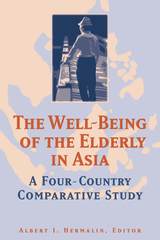
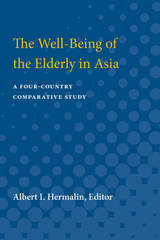
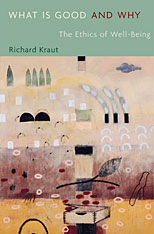
What is good? How can we know, and how important is it? In this book Richard Kraut, one of our most respected analytical philosophers, reorients these questions around the notion of what causes human beings to flourish--that is, what is good for us. Observing that we can sensibly talk about what is good for plants and animals no less than what is good for people, Kraut advocates a general principle that applies to the entire world of living things: what is good for complex organisms consists in the maturation and exercise of their natural powers.
Drawing on the insights of ancient Greek philosophy, Kraut develops this thought into a good-centered moral philosophy, an "ethics of well-being" that requires all of our efforts to do some good. Even what is good of a kind--good poems no less than good people--must be good for someone. Pleasure plays a key role in this idea of flourishing life, but Kraut opposes the current philosophical orthodoxy of well-being, which views a person's welfare as a construct of rational desires or plans, actual or ideal.
The practical upshot of Kraut's theory is that many common human pursuits--for riches, fame, domination--are in themselves worthless, while some of the familiar virtues--justice, honesty, and autonomy--are good for every human being.
READERS
Browse our collection.
PUBLISHERS
See BiblioVault's publisher services.
STUDENT SERVICES
Files for college accessibility offices.
UChicago Accessibility Resources
home | accessibility | search | about | contact us
BiblioVault ® 2001 - 2025
The University of Chicago Press









